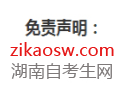ot English materials in our English study. We may read textbooks, magazines, short passages in examinations, etc.. That means we can always get access to a certain amount of idiomatic English. From the above, we’ve got an idea that it’s necessary and possible for us to combine reading with writing to improve our EFL writing ability. In the following parts, I will bring forward the definition of reading-to-writing approach and show us the necessity and feasibility of reading-to-writing approach.
5.1 The definition of reading-to-writing approach
When it comes to reading-to-writing approach, firstly we need to know what reading-to-writing approach is. Liu Ye (刘烨,2006) offers us an idea about the definition of reading-to-writing approach.
Reading-to-write is a way paying attention to both language input and output, which means attaching importance to the development of linguistic competence for communication, which regards students as the centre of the class, task as the way, language functions and skills as the purpose.
Reading-to-writing approach in this study is, in essence, a way to integrate reading and writing to improve EFL writing ability. In reading-to-writing approach, reading is not only a way to understand the reading materials but most importantly a way to learn and master the usages of words, the arrangement of sentences, the organization of paragraphs and a way to acquire and accumulate language knowledge, writing materials and writing skills for EFL writing; writing is a means of expressing ourselves by applying what we have obtained from the reading materials.
In general, reading-to-writing approach in this study emphasizes the integration of reading and writing and the importance of forming a habit of reading for writing and writing to promote reading.
5.2 The necessity of reading-to-writing approach
According to our teaching practice in BoBai Middle School, it is found that the main failures in our compositions are broken sentences, wrong spellings, incorrect usage of words, Chinglish, collocation error, voice error, tense error, wrong references, disordered sentence structures, illogical paragraphs, and so on. The following reasons may account for our failures in EFL writing. First, poor amount of active vocabulary. In fact, we have learned a certain amount of vocabulary in primary and middle schools. The amount of vocabulary we have acquired is enough for us to express our ideas, but we just cannot make fully use of them. That is to say, we do not master enough active vocabularies. Second, poor in applying grammar knowledge. As a matter of fact, most of us know a set of grammar rules and usually do a good job in multiple choice of grammar, but we just cannot use them appropriately in EFL writing. Third, poor sense of sentence arrangement and composition structure. We do not know how to arrange the sentences and develop the paragraphs in EFL writing. Fourth, we used to think in Chinese and then translate the Chinese version into English word by word since the interferences of our mother tongue. Thus, what we write are often unidiomatic English and chinglish are often found in our EFL writing. For example, “Pay attention to your body”, “His relation is strong”, “Good good study, day day up”, etc.. Therefore, we have to improve our EFL writing ability comprehensively but not to attach improvement only on grammars, words or writing skills.
There is a saying says: “the best way to improve our knowledge of a foreign language is to go and live among its speakers; the next best way is to read extensively in it”. It’s hard or even impossible for us to live among native English speakers; so we have to read extensively to improve our knowledge of English. Here Judith Oster (1984 :ⅹⅴ) offers us the importance and functions of reading:
Reading puts us in touch with other minds and feelings and experiences. We also experience the ways in which the writers have organized information, chosen words, structured arguments. We can see how well a good writer expresses himself; what makes that writing so effective, what we can learn from it. Reading gives us ideas we may not have imagined, information we may not have had….It may stimulate us to think, to feel, to read, or even to argue against the writer’s view.
Thereby, it’s never too exaggerated to emphasize the importance of reading. Without sufficient English reading, it’s hard or impossible for us to write good English compositions. In fact, we can get what we want in our English reading, including the usage of words, the arrangement of sentences, the patterns of compositions, the organization of compositions, etc..
Nevertheless, most of us don’t know how to use the reading materials we have read even though we read a lot. Traditionally, we tend to treat reading as reading and writing as writing. Mostly, we read just for comprehension or purely for doing multiple choices and answering the questions about the reading materials. Accordingly, “many students eventually get into the habit of reading only for understanding; consequently, they miss many of the ideas implied in a text (刘烨,2006)”. Confronting EFL writing, we often feel perplexed and a sense of mind-emptiness since we write just to finish the “task” in EFL writing practice.
The poor performance of our EFL writing, the importance and functions of reading and our unawareness of applying reading materials in our EFL writing all urge us to put away our traditional EFL writing methods and find out an effective EFL writing approach.
5.3 The feasibility of reading-to-writing approach
We may have our own writing approach, but a good writing approach may lead us to get twice the results with half the effort in improving our EFL writing ability. So it is necessary for us to grasp a suitable and effective EFL writing approach. Now, let’s first probe into the most prevalent ones in senior high schools: the product approach and the process approach.
The product approach “pays great attention to the accuracy of the final product but ignores the process, which the students go through to reach the final goal (王蔷,2000: 141)”. The product approach is a traditional one, which follows this pattern: the teachers give a topic, a set of requirements, and a time limit—the students finish the task within the time limit and hand in the final product—the teachers evaluate the students’ compositions. In fact, we are quite familiar with this pattern because we are always assigned by our teachers to do so. We may get a clear idea of what to write in this approach, but its disadvantages absolutely outweigh its advantages. For one thing, we don’t feel free to write because the given topic will lead us to imitate or translate the given models or guidance. For another, after handing in our work, our teachers mainly evaluate and correct the words, spellings and grammars but give very few comments on content, structures, organization and writing skills. As Wang Qiang (王蔷,2000:137) points out that the students’ work is evaluated based on the accuracy of the final product. That means “the process which the students go through while doing the writing task is virtually ignored; that is, the teacher turns a blind eye to how the students produce the product (王蔷,2000:137)”. That is to say, the teachers pay little attention to our problems and difficulties in the process of writing and ignore offering guidance in our writing process. Moreover, most of us put our work aside after it’s handed down. We usually don’t take our teachers’ comments and corrections seriously, not to say rewrite our own works. Thus, the product approach does little good to improve our EFL writing ability because it only trains the usages of words and grammar knowledge but not improves our EFL writing ability.
“The process approach does not only pay attention to what students do while they are writing; it also attaches great importance to what the students (and the teacher) do before they start writing and after they finish writing (王蔷,2000:142)”. “The process approach puts much emphasis on the students’ writing process and help to discover, analyze and solve problems in the students writing process (刘上扶,1998:54)”. In process approach, writing is a process of brainstorming, outlining, drafting, sharing, revising and evaluating. In this approach, we can feel free to express ourselves, get guidance from our teachers or peers, experience every detail of writing and broaden our mind. But it still has its drawbacks. First, it costs a lot of time. Applying product approach, we have to collect information, write an outline, write the first draft, share and discuss with our peers, revise our works and then hand in for evaluation. To a senior high schools student who has heavy learning task, we cannot afford so much time to do so. Second, we cannot form a habit of writing in limit time. As we know, all kinds of examinations, which are significant to us, require us to write in a given time.
From the above, we can easily get a conclusion that the product approach and the process approach are not suitable and feasible for us to improve our EFL writing ability.
Reading-to-writing approach is quite different form the product approach and the process approach. In reading-to-writing approach, as mentioned in the definition of reading-to-writing approach, most of the time we may spend on is to write something simultaneously while we are doing our regular reading.
TEL:蒋老师17773102705
扫一扫下方二维码关注湖南自考生网微信公众号、客服咨询号,即时获取湖南自考、成考、网教最新考试资讯。

关注公众号免费拿资料

微信扫一扫咨询

微信扫一扫咨询

1、鉴于各方面资讯时常调整与变化,本网所提供的信息仅供参考,实际以考试院通知文件为准。
2、本网部分内容来源于网络,如有内容、版权等问题请与本网联系,我们将会及时处理。联系方式 :QQ(393848300)
3、如转载湖南自考生网声明为“原创”的内容,请注明出处及网址链接,违者必究!